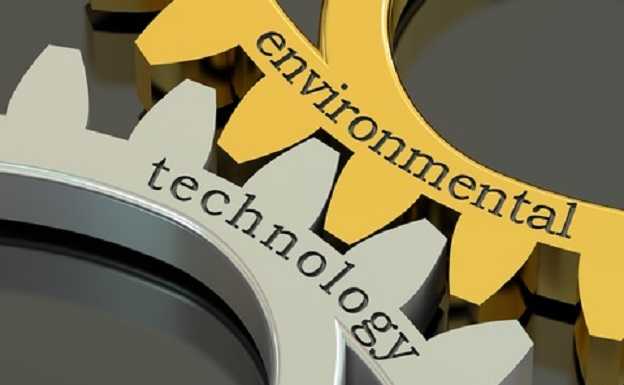Beyond personal success as a female professional in the IT world, Joanne Moretti has devoted several years to working with IT women’s organizations to support the growth and development of women in IT roles. A native Canadian, she was member of the CIPS women’s chapter, serving as co-chair of the CIPS Women in Technology Forum, an event held each year on International Women’s Day to create awareness around the opportunities in IT and to encourage young women to prepare for and pursue a career in IT through STEM studies. Moretti’s role in the annual event was motivational, and she found her information sessions with high school students to be “most gratifying” as at that time “young women had no idea what IT was.
Fast forward five years later, and the mobility and app revolutions have created greater awareness of IT among the younger generation, IT is now ‘consumerized’ and in the hands of most teenagers. However, low enrolment by girls in STEM programs convinced Moretti of the ongoing need for work to foster the creation of greater gender balance in the industry. She now sits on the advisory board of the Executive Women’s Forum for Risk and Security Professionals (EWF), has served on women’s panels in Berkeley and San Francisco, and worked with young female high school students in New York, using modern visualization techniques, such as infographics in efforts to inspire young women — and to bridge the gap between what students know about IT and what really exists.
Moretti began her IT career with the CIBC, a large Canadian financial institution based in Toronto, and has 25 years of experience in sales and marketing at CA Technologies and HP. Today, she serves as VP and global head of software marketing for Dell, helping the company build out its new software organization by integrating seven recently acquired software firms to support of Dell’s mission to become an end-to-end solution provider. Despite this large transformational undertaking, her commitment to the EWF, and busy family life, Moretti has found the time to act as co-chair of Dell’s WISE (Women in Search of Excellence) North America group, an employee resource group aimed at helping female professionals develop their opportunities and have an impact at Dell.
Moretti has taken time to discuss mechanisms for encouraging women’s entrance into the IT industry with InsightaaS.com editor Mary Allen, as well as the organizational/institutional change needed to support women’s success in the profession. An edited version of the interview follows.
Mary Allen: I can appreciate that educating young women is easier now that apps and mobile technology are readily consumable, and with the new presentation tools that you have available to you. But we still have the situation where female college entrance into STEM and computer science programmes peaked in the 80s, where women’s representation in IT jobs peaked in the 80s, and where women’s participation in IT has been on the decline ever since.
Joanne Moretti: It really has been, and that’s why I continue to stay focussed on the consumer topics. I’m not exactly sure what’s happened. We’ve tried to analyze it [declining participation in IT], and the only thing we come up with is “let’s go talk to the young girls again.” The pressure is on, because if you let your foot off the gas, it’s just going to get worse. We can’t really explain the phenomenon: certainly the young women that we meet on these events are bright and want to grow.
We believe strongly in building STEM awareness among the next generation of girls. It’s why we have partnered with organizations like the Girl Scouts on the launch of Be the Video Game Designer, which puts girls in the driver’s seat of video game development. We know that when we empower girls to consider careers in technology, we all succeed.
The other thing that we’ve done is to describe options for someone who may not be inclined towards science and math programmes. What I try to do is express another side of IT, which involves project management, business analysis, marketing, sales and the whole ecosystem around IT and technology, and that really starts to resonate. We have a large number of women at Dell in marketing and communications. In fact, our executive level team at Dell includes a woman, Karen Quintos, who is the corporate CMO for the organization.
This has helped because it creates another pathway into high tech for girls who may not be interested in taking sciences and math. You can pursue liberal arts; you can do business courses; and you can take those other kinds of programmes and still find yourself in high tech. I have been blessed with a career in IT, but not on the frontline with coding and analytical, nitty-gritty, scientific stuff. It’s been more on the side of marketing, sales and business leadership.
I think there are other onramps to successful IT careers. Project management is a huge area where we talk about excellence. A lot of operational excellence comes from getting it right at the beginning and ensuring proper change management and efficient management of large IT projects. There are phenomenal opportunities here as there is so much transformation going on. This is another laneway.
Allen: I did take a quick look at the executive leadership team at Dell because I was interested in Dell’s particular record. I saw that Karen Quintos was the CMO, but as you know, this a traditional area where women are clustered. What about issues around the glass ceiling? I see that you have ten people on the executive leadership team, but there’s only one woman. So what is Dell’s record on promotion and advancement of women, whatever area they’re in? Is Karen really unique?
Moretti: There is another female “C” level executive at Dell, our CIO, Adriana Karaboutis, who holds the highest IT position in our company, and while Dell is very flat as an organization, we have women in key global leadership roles, including HR, legal, sales, sales operations, customer care, operations, marketing. We have an incredibly strong pipeline internally.
I was asked to take on a co-chair position for WISE at Dell, along with the VP of Dell’s global sales operations, Bobbi Dangerfield, who is also really focused on this issue. When they invited me to sit on the board a few months back, in the first meeting I said, “Okay, we need to focus on getting women ready for senior executive roles,” and everybody practically cheered. They had all wanted this but nobody said it!
I really feel passionate about this, and about the opportunity to connect with another woman’s group sponsored by Dell, the Dell Women’s Entrepreneur Network (DWEN). The Entrepreneur Network is phenomenal because it’s an external organization that’s helping female entrepreneurs find their way: it supports them, gives them guidance and a network, and it’s become quite a significant group. I encourage you to visit the DWEN website and to join the Women Powering Business LinkedIn group.
One important DWEN activity is an ‘invitation-only’ annual global conference, which met first in Shanghai in 2010. Since then, the conference has been hosted in Rio (2011), New Delhi (2012) and this past year in Istanbul (2013). Next year the event will take place in Austin, Texas. We host about 150 women entrepreneurs, but keep the event intimate enough to allow women to connect and actively participate. The idea is that DWEN is there to support female entrepreneurs out in the market and to help with issues around hi tech. Fundamentally, DWEN is about enabling networks, access to capital and technology.
Allen: I agree that networking is really fundamental: it builds women’s confidence, and creates opportunities for them. But what can employers do? You made a really interesting point when you said there’s no SVP level at Dell, and that the onboarding of women executives might not be easy. But flat organizational structure would be an issue for men as well. Maybe it’s too early to say, but what can you do in WISE, in partnership with Dell, to advance women?
Moretti: We’re coming up with a number of great ideas to build confidence, skills and knowledge. For example, one area is building out general business acumen and helping women speak in the language of business when communicating. I see a difference here [between men and women] and if we can close in on this gap through coaching and learning programs, women can become more fluent and confident in the language of business.
When women achieve that fluency, it breaks down everything. I’ve seen it in many of the organizations that I’ve worked in. When you compare the women who really know how to handle themselves in a business forum with the ones that tend to lean on their soft skills, it’s clear that those skills, great as they are, are not going to get them through. They just aren’t enough to get you through the glass ceiling, if there is one.
Allen: Are there any unique qualities that women can bring to work in IT, either at a staff or management level? Is there some way that you can convince the broader male community that these qualities are valuable?
Moretti: First of all, there is nurturing — coaching and nurturing people who are developing their careers. I think it’s an incredible asset that needs to be on a checklist of great leadership. Then there is basic emotional intelligence and the ability to be authentic to the point of sometimes admitting you made a mistake. I took a poll once to find out if “it’s OK for a manager to admit they made a mistake.” The findings were interesting as most women said it was OK, but only about 50 percent of the men said it was OK. So women are able to say “Mea culpa, I messed up,” a lot more readily than men are, and this quality builds trust. Trust yields accountability, and accountability of course yields results. So women don’t feel like they have to keep that “resilient — I’m perfect” protective shell on.
The other skill that women have developed over thousands of years is the ability to multi-task. This is critical, not just in IT but in any industry that’s feeling pressure on costs and the need to do more with less. Women rise to this occasion because we can do so much, and we constantly juggle home and work. So multi-tasking, nurturing, coaching and emotional intelligence are really important, and I do think employers are looking for those skills these days, definitely. These are skills that should be at the top of a “leadership candidate assessment” or “top talent” form.
Allen: Have you discussed any of these ideas in a professional forum at Dell? Have you gone to management, for example, to explain how you would like to work with the WISE organization?
Moretti: WISE is a passionate Employee Resource Group that often holds events where leaders and our team members come together to talk about issues women face in the workplace. An upcoming event could focus on EQ (Emotional Quotient) development specifically because this is a big issue. EQ is important these days, particularly from a leadership perspective. I’m going to talk to WISE about it next time we meet — suggest we add some additional, valuable criteria that should be evaluated during an interview process or during a talent review.
Allen: Yes, or that could be taken into account in mentoring programmes. Does Dell have any formal or informal mentoring programmes?
Moretti: We are advocates of both formal and informal mentoring. You’ll hear us talk a lot about mentors and advocates during our WISE events. Dell has a formal mentoring program but we also encourage team members to find an informal mentor. Additionally, I’ve had several people approach me informally.
Allen: These are really fantastic ideas, because while there may be an issue with girls’ lack of interest in STEM subjects, there’s a whole other issue that may be even more of a barrier to women’s success in IT, and it’s around the culture. What the community is like if a young women is entering the IT profession may be a critical factor.
It’s great to hear that you continue to generate new ideas on how to make women feel more comfortable and move this forward because one of the other real challenges is the shortage of skilled professionals in the IT industry. If half of the potential workforce is unavailable, then it’s a loss to the IT as a whole. There has to be some way to encourage and accommodate women, otherwise, the industry itself suffers.
Moretti: One of the problems is that there are just not enough women in the industry to even promote. It’s not necessarily a matter of the glass ceiling. We need more women that we can mentor and coach and get them ready to the point where they can be considered for management. It’s a volume problem more than anything else.
Allen: Yes, and success on this is important to women too because IT is one of those fields that is better paid. Gender issues aside, IT is an area where there is some opportunity going forward because it’s a growing, expanding industry. So it’s important for women to find avenues into IT. What’s your best piece of advice to a young person — to a young female who might be considering an IT profession?
Moretti: I have a few pieces of advice here. First off, make use of social media. It is an amazing medium. Use it to connect with some of the key IT influencers and people that you can learn from. This could be individuals that are blogging about IT and the impact that it has on business, or people that are writing papers and researching different issues. I just love the whole social media scene it’s like my (real time) newspaper and I appreciate watching what people are recommending. It is also important to become part of these very important women networks, organizations such as the Anita Borg Institute, the WITs, DWEN, the Executive Women’s Forum, Women 2.0 , etc. You should also find a mentor: not just one mentor, but build yourself a ‘Personal Board of Directors’ to help you consider information, provide feedback and make decisions. Finally, make sure you are acutely aligned with your organization’s strategy; be able to recite it, understand it, immerse yourself in it and live it. Otherwise you will miss important signals, and quite possibly career-changing opportunities to grow if you are narrowly focused on your job and not the company overall.








